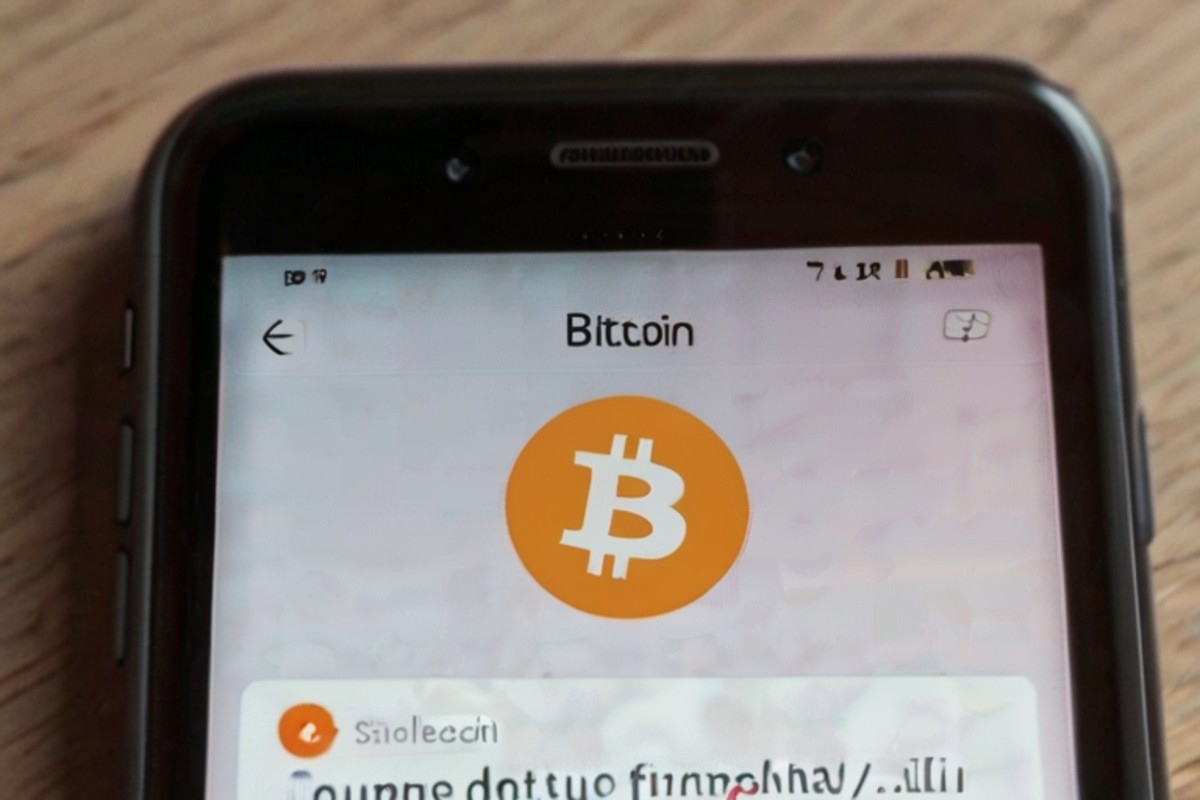Month: February 2024
Newly Revealed Satoshi Email Correspondence with Martti Malmi
Satoshi Nakamoto’s earliest collaborator Martii ‘Sirius’ Malmi has released their entire email history. At 120 pages, its the most significant addition to the archives of #Bitcoin‘s unknown inventor. Here are the most important new findings:
When asked how #Bitcoin might scale in the future, Satoshi theorized the network would have a maximum of 100,000 nodes. Here he goes into the calculations assessing the economics of bandwidth costs to nodes (read: miners) in propagating transactions across the network, as well as the economic cost that would incur and how that could be cost effectively passed on to users. He also discusses the implementation of users paying fees, and hints at the potential for the fee necessary for confirmation of your transaction being market driven due to the processing capacity of the network.
Note: About 50,000 nodes run the software today
Satoshi believed #Bitcoin mining would be less energy intensive than the legacy banking system when considering the operational costs of bank infrastructure, i.e. maintaining real estate and the incurred costs of those building, ancillary costs such as mail transportation costs, etc.
Note: This is by far his best new quote.
Satoshi foresaw at least one viable, non-monetary use for #Bitcoin, describing the possibility of time stamping a hash into a transaction in the blockchain to prove that a piece of data existed when that block was mined.
Satoshi describing the differences between #Bitcoin and DigiCash, David Chaum’s failed e-money This is notable as Chaum’s work had a profound impact on the cypherpunks, including Hal Finney. He specifically discusses the differences in privacy properties of the two models, and notes that unlike Chaum’s scheme did not support an offline model, requiring all participants to be online to make use of the system.
He also explains the finite supply cap of bitcoin.
Satoshi was concerned about his legal risk in launching #Bitcoin, noting he was “uncomfortable” with explicitly labeling it an investment.
Note: Here also we see he didn’t come up with the term “cryptocurrency” himself.
By July 2009, Satoshi was tired, saying he “needed a break” from Bitcoin. Here, he also explains Hal’s absence from the work. He also mentions spending a period of 18 months at that point developing Bitcoin.
A curious note as well, he asks Malmi if he had any ideas for applications people can actually use Bitcoin for.
Satoshi discussing how #Bitcoin might gain adoption. Of note is his emphasis that Bitcoin was easy to obtain given that you could mine it on a computer. He also goes to postulate how the nature of a market trading for Bitcoin would evolve, discussing how skeptical people might be of its value, stating he was confident the increasing mining difficulty would prove its scarcity to people.
Very different from how we think about BTC today in terms of acquiring it, but demonstrating a prescience of how people would mentally value it in the future.
In June 2010, someone offered to donate $2,000 to Satoshi for his #Bitcoin work. Notably, he had the donor send it to Martti’s address. He also communicated care that the donor’s privacy was respected.
Already known, but Satoshi was pretty adamant that early users consider #Bitcoin “free” Here he is discussing removing transaction fees from the UX of an early software. It’s interesting that his reasoning was to obscure this feature from users, but simultaneously acknowledged its necessity in the far future.
Satoshi worked on #Bitcoin on Christmas day. There are some interesting implications here to consider regarding his personal life.
Satoshi saw #Bitcoin taking hold as a way to trade other internet currencies like Liberty Reserve. He also goes on to discuss the potential for markets selling gift cards for bitcoin, which wound up becoming and is to this day a significant market for bitcoin.
Note: Liberty Reserve was later shut down by the US.
Satoshi had a mysterious leave of absence from #Bitcoin in 2010. Here he is talking about it with Martti, though it’s notably also short on details.
It was Satoshi who removed the language that Bitcoin was “anonymous” from http://Bitcoin.org. He worried it made Bitcoin sound “shady.” This echoes his later sentiments around Wikileaks announcing their acceptance of bitcoin for donations.
Worth noting given the historical revisionism around this, Satoshi thought very highly of Gavin Andresen. Here he is praising Gavin and referring to someone else as a “goofball.”
We finally have a copy of the email Satoshi sent other developers before taking his name off the project website. As they’ve said, Satoshi doesn’t mention his intention to step back from the project at all.
Overall no substantial new information is brought to light, but the emails do give a new angle to Satoshi’s interactions with others involved in the project before his departure.
RIOT PLATFORMS AND TEXAS BITCOIN COUNCIL SEEK INJUCTION AGAINST EIA SURVEY
Today at 11:30a in Waco, Texas, the Texas Blockchain Council and Riot Platforms, Inc., asked a Federal District Judge Alan Albright for a temporary restraining order blocking the Energy Information Administration from enforcing their “emergency” survey.
At that hearing, the attorneys for the Government offered a voluntary declaration by EIA Administrator DeCarolis, offering a four-week pause on enforcement and collection. Judge Albright, recognizing that the Government’s offer here was little more than an empty promise without some sort of enforcement mechanism, directed the Government to work with the Plaintiffs to craft a negotiated order that would fully bind the Government to:
Take down the survey for the agreed four-week period;Provide notice that anyone who hasn’t yet complied, that they don’t need to comply right now; andProvide an affirmation that any information which has been received so far, or which is received in the interim, shall be sequestered and not utilized by the Agency.
Also, this order will be National in scope, so every miner in the US is covered.
If the Government can’t reach an agreement by 3pm Central today, the Judge indicated that he would issue a Temporary Restraining Order with the same effect as the above, but would accelerate the timetable to the permanent injunction hearing.
We’ll know more in a few hours when the final order is entered, but it looks like for now at least, the EIA has been stalled in their (allegedly illegal) “emergency” data collection.
Here is a link to the case files.
This is a guest post by Colin Crossman. Opinions expressed are entirely their own and do not necessarily reflect those of BTC Inc or Bitcoin Magazine.
New Freelance Marketplace Launches Where Users Get Paid In Bitcoin
A new development in the freelance industry has emerged with the launch of Plebwork, a dedicated marketplace where freelancers can earn Bitcoin for their work, according to a press release sent to Bitcoin Magazine. Launched today, Plebwork offers a unique platform for freelancers to connect with Bitcoin companies and receive payment directly into their Bitcoin wallets.
It’s 2024 and it’s time to earn #bitcoin for your work. pic.twitter.com/hLci3NBtBt
— Plebwork (@plebwork) February 23, 2024
Unlike traditional freelance platforms, Plebwork caters specifically to the Bitcoin community, providing a space where freelancers with expertise in Bitcoin-related skills can find part-time jobs with businesses operating in the Bitcoin space. Likewise, businesses seeking qualified part-time talent can access a pool of freelancers who possess in-depth knowledge of Bitcoin.
“We’re building a marketplace for bitcoiners to work together,” said Thibaud, a representative from Plebwork. “Whether working on Bitcoin wallet inheritance, educating individuals, or making Lightning easier, it requires a ton of people to work together in trying new things. We hope Plebwork can help bitcoiners do that while earning more bitcoin by building on Bitcoin.”
The launch of Plebwork aims to address a significant gap in the market, as many Bitcoin businesses have previously relied on general-purpose freelance platforms that may not cater to their specific needs. By offering a dedicated marketplace for Bitcoin-related projects, Plebwork hopes to streamline the process of finding and hiring freelancers while promoting the adoption of Bitcoin as a means of payment for freelance work.
Plebwork is currently available in early access, allowing freelancers to list their profiles for free. Clients seeking to post jobs can request invitations and have their profiles verified to ensure they are Bitcoin-only businesses. With features like built-in invoicing and payment processing using BTCPay Server, Plebwork intends to offer a seamless platform for freelancers to earn bitcoin while contributing to the growth of the ecosystem.
Scaling Liberty: Bitcoin’s Tension Between Ideology and Adoption
Since its inception over 15 years ago, Bitcoin has captured the imagination of libertarians, anarchists, and a variety of other advocates of individual liberty and financial sovereignty. To them, Bitcoin represented a revolutionary challenge to State-controlled money and authority. As such, it has come to symbolize a disruptive shift toward greater freedom and autonomy for individuals in modern society.
Yet as Bitcoin gains mainstream traction, there are more and more signs it may be shedding its revolutionary roots. The exponential growth in users and market value has corresponded with a dilution of the liberty-oriented ethos that initially defined the technology. In a future hyperbitcoinized world, will Bitcoin still embody the libertarian ideals that sparked so much excitement among its early adherents? Or will it become just another compliant financial asset absorbed into the existing global monetary order?
This question goes beyond philosophical debates around crypto-anarchism and speaks to tangible decisions developers, miners, and users will be confronted with in Bitcoin’s next decade. Hard tradeoffs between the cypherpunk vision of total financial freedom and necessary compromises for scalability lie ahead. Navigating these choices will determine whether Bitcoin realizes its disruptive potential or succumbs to the governmental forces it originally sought to circumvent.
In contemporary society, adopting the libertarian mindset is often deemed radical in contrast to mainstream allowable opinion—a perspective acknowledged by many within the libertarian community. The prevailing challenge lies in the pervasive acceptance of the superstition of statism, an entrenched belief system that liberty advocates conscientiously confront. Despite the formidable nature of this challenge, many libertarians remain committed to advancing liberty through diverse and strategic initiatives. Their collective efforts aim not only to challenge the status quo but also to instigate a profound shift in societal attitudes toward liberty.
The struggle against the prevailing acceptance of statism is an ongoing journey, and as dedicated advocates, they recognize the need for multifaceted approaches. From engaging in public discourse to fostering educational initiatives, their endeavors are rooted in the conviction that the principles of liberty are essential for a flourishing society. This commitment extends beyond ideological boundaries, encompassing a shared vision for a future where individual freedoms are valued and upheld.
As a liberty advocate, the discovery of Bitcoin marked a pivotal moment for me. As I began my journey down the rabbit hole, I couldn’t help but feel an exhilarating excitement about the project. This cryptographic protocol offered a sly roundabout way to separate money from the State, providing a new practical way to advance liberty in our lifetime. Bitcoin embodied the principles of individual sovereignty and financial autonomy. It became a beacon for those seeking alternatives to the coercive centralized systems of the State.
The concept encapsulated in the meme “Bitcoin is a trojan horse for liberty” resonated deeply. It suggested that individuals, previously indifferent to the principles of liberty, might unknowingly embrace them while pursuing personal financial gains through Bitcoin. The idea that the “number go up” technology is, in essence, a covert “liberty go up technology” underscored the transformative potential of Bitcoin within the larger context of advancing individual freedoms and challenging traditional power structures. This aspect added another layer of significance to my appreciation of Bitcoin’s role as a revolutionary force within the broader liberty movement.
Bitcoin has demonstrated its ability to empower individuals in bypassing authoritarian regimes. Organizations like the Human Rights Foundation and the Oslo Freedom Forum have effectively highlighted personal stories of how Bitcoin has positively transformed lives around the world. It has provided people with the ability to engage in transactions using currency free from government debasement and censorship. This sentiment reverberates within the Bitcoin community today, expressed through slogans such as “not your keys, not your coins,” “be your own bank,” and “we’re separating money from the State!” There is a wealth of educational content dedicated to promoting these principles and emphasizing the increased freedom that comes with monetary sovereignty.
Additionally, Bitcoin enhances individual liberty by allowing individuals who are capable of saving the ability to store their value in a savings technology that is not subject to the government’s Ponzi scheme of fiat money. Individuals can exchange in a currency that the government cannot censor, providing a secure and censorship-resistant medium for financial transactions. While these achievements are noteworthy and deserve recognition, there is an uncomfortable truth that often remains undiscussed or even ignored – the challenge of scaling the number of sovereign users on the network.
As you delve deeper into the world of Bitcoin, you’ll gradually adopt a more technical perspective. While some find this understanding to be intuitive, others may face challenges. Nevertheless, you’ll eventually confront the reality of blockchain scalability. Due to blocksize limitations, there exists a transactional throughput limit for each new block. The consensus solution embraced by the network was a layered scaling approach. Enter the Lightning Network, a second-layer solution designed to enhance the economic density of on-chain transactions. It enables two parties to engage in a multi-signature channel, facilitating a multitude of payments for each of the few required on-chain transactions, including opening, splicing, and closing of channels. Despite issues like liquidity management and online requirements, this engineering marvel significantly expands the network’s transaction processing capabilities, almost without bounds. The only catch: Custodians will be necessary for the majority of users.
Despite the current implementation of the Lightning network, there is still a limitation on the number of sovereign users the network can accommodate. Despite improvements in payment scaling, the Bitcoin network can only support 10-100 million sovereign users who update lightning channels a few times a year—whether they are individuals, single custodians, or federated custodians implementing eCash systems. In a hyperbitcoinized world with over 8 billion people, it’s easy to grasp the implications. The uncomfortable reality is that less than one percent of the global population will have the ability to use Bitcoin in a sovereign manner.
Achieving sovereignty with Bitcoin involves having exclusive control over a UTXO. Scaling the number of sovereign users on the network requires additional engineering efforts and consensus changes. It’s essential to establish trust-minimized mechanisms for users to share a UTXO and address disputes over partial UTXO ownership without imposing excessive economic costs for resolution. There is currently ongoing discussion within pockets of the development community on how activating covenants could begin to address these issues, in particular how CTV can help scale Bitcoin as an initial building block for solutions to these sovereignty scaling problems.
The gravity of this issue and the urgency it carries harken back to the extent to which you truly value the principle of separating money from the State. We find ourselves at a pivotal juncture, pondering the course and significance of what a world fully immersed in hyperbitcoinization truly entails. Without intervention, we could find ourselves in a future where 99% of the population necessitates some form of custodianship to navigate the intricacies of the Bitcoin network.
This potential scenario raises a legitimate concern about the State potentially exerting control over the network in the future. The question of urgency becomes paramount. While I refrain from advocating reckless behavior and hasty implementation, there is a discernible sense that a metaphorical window of opportunity is closing in on us.
Reflecting on Bitcoin’s history, it becomes evident that activating consensus changes to the network becomes progressively challenging as it expands. The growth of the network introduces complexities, making it exponentially more difficult to persuade an overwhelming majority to embrace a protocol upgrade unless there is an immense demand for such a change. This nuanced view highlights the need to carefully and promptly consider Bitcoin’s evolving ecosystem dynamics.
My worry revolves around the pressing need for the majority of participants to genuinely value individual liberty, recognizing its significance in implementing crucial upgrades and addressing these prevalent scaling issues. Having ventured into the realm of Bitcoin from a libertarian standpoint, I’m painfully aware of the prevailing lack of regard for liberty among the majority in society. There’s a genuine fear that Bitcoin, initially a cornerstone of the liberty movement, may gradually lose its essence and be relegated to just another financial asset—first gradually, then suddenly.
Confronting the present reality demands a pragmatic perspective, and acknowledging it for what it is rather than wishful thinking. To those who share the weight of my concerns, I passionately implore you to remain firmly grounded and unwavering in your commitment to championing individual liberty. Embrace, with genuine conviction, the pivotal role that Bitcoin plays in advancing this cause. The path ahead is formidable, requiring a united effort deeply connected to our collective purpose. Let’s tackle the challenge of sovereignty scaling with authenticity, fully cognizant of the crucial work that lies ahead. Each of us possesses a unique and indispensable role in this organic endeavor—let’s embrace it with authentic strength and unwavering determination.
This is a guest post by Michael Matulef. Opinions expressed are entirely their own and do not necessarily reflect those of BTC Inc or Bitcoin Magazine.
Swiss still love physical cash despite rise of payment apps
Post Content
Asia FX weak, dollar steady after hawkish Fedspeak, strong labor data
Post Content
Dollar dips, data stays in focus for Fed clues
Post Content
Reddit Invests Excess Cash Reserves Into Bitcoin
Reddit, the popular social media platform, has disclosed in a Securities and Exchange Commission (SEC) filing that it has invested a portion of its excess cash reserves into Bitcoin. The social media giant revealed this today as they have applied to go public and list their Class A common stock on the New York Stock Exchange under the symbol “RDDT” with this filing.
BREAKING: Reddit invested excess cash reserves into #Bitcoin — SEC filing pic.twitter.com/13IWr3QFvH
— Bitcoin Magazine (@BitcoinMagazine) February 22, 2024
“We invested some of our excess cash reserves in Bitcoin and Ether and also acquired Ether and Matic as a form of payment for sales of certain virtual goods, which we may continue to do in the future,” the filing stated. “Our investments in cryptocurrencies for treasury purposes are limited to Bitcoin, Ether, and any other cryptocurrency that the SEC, Commodities Futures Trading Commission, or high-ranking members of the staff of such regulatory bodies may, through public statements or guidance, identify as likely not being a security.”
The decision to allocate funds into Bitcoin reflects Reddit’s confidence in the long-term potential of Bitcoin despite its short-term volatility. By investing in Bitcoin, Reddit joins a growing list of companies that have added BTC to their balance sheets as a hedge against fiat currency devaluation.
Reddit’s move also signals a broader trend of institutional adoption of Bitcoin, as more companies recognize the value proposition of BTC in today’s evolving financial landscape. While Reddit did not disclose the specific amount of Bitcoin it has purchased, the decision to invest in Bitcoin underscores its belief in the resilience and potential of BTC as a store of value and investment vehicle.
Marathon Launches Slipstream Tech Stack to Process Non-Standard Bitcoin Transactions
Marathon Digital Holdings, the largest publicly traded bitcoin miner by market capitalization, has launched Slipstream, a service for individuals to easily submit complex and non-standard transactions to the Bitcoin network. Slipstream is the first instance of a public bitcoin mining company facilitating direct transaction submission services, made possible by the fact that Marathon operates its own proprietary mining pool, Mara Pool.
According to a press release sent to Bitcoin Magazine, non-standard Bitcoin transactions are often excluded from submission to Bitcoin nodes’ mempools despite their adherence to consensus parameters. These transactions, such as those associated with Ordinals and inscriptions, were already possible, but Slipstream aims to facilitate this process with a user-friendly and formalized process for direct submission.
Marathon CEO Fred Thiel: “While direct transaction submission services exist, most are rudimentary. Slipstream provides sophisticated users with a simple, transparent, and trusted means of adding complex Bitcoin transactions to the blockchain, provided they adhere to Bitcoin’s protocol.”
Thiel also noted the importance of this venture to support innovation and experimentation on Bitcoin: “We believe Slipstream is mutually beneficial for the industry and for our organization, and we look forward to building on this announcement to further assist those who are building on Bitcoin.”
Oldest Football Club Bulgaria Adopts Bitcoin Lightning and Liquid Wallet In New Partnership
Bulgarian football club Botev Plovdiv, the oldest football club in Bulgaria, has taken another step towards embracing Bitcoin and accelerating grassroots adoption of the digital currency in a strategic partnership with JAN3, a leading technology company focused on expanding access to Bitcoin. Botev Plovdiv aims to become the premier Bitcoin-native sports club, according to a press release sent to Bitcoin Magazine.
“Bitcoin is central to our club’s strategy,” stated Botev owner Anton Zingarevich. “We’re inspired by the global success stories of Bitcoin adoption and are excited to bring this innovation to Botev, our fans, and the city of Plovdiv. JAN3’s cutting-edge tools are instrumental in this journey.”
This collaboration introduces innovative measures to integrate Bitcoin into the club’s operations and engage with its fan base. The AQUA Wallet, developed by JAN3, also introduces “Botev Mode,” aiming to make transactions more accessible and efficient for fans and the local community.
JAN3 told Bitcoin Magazine that with the integration of their AQUA wallet, the idea is for the club to introduce discounts or even a cashback program for paying in bitcoin, and that “the club will also aim to educate Bulgarian fans that take an interest in Bitcoin, teaching them how to use it not only for team purchases but also integrate in their daily lives.”
As part of the partnership, Botev Plovdiv’s team jerseys will feature JAN3’s logo. The integration of the AQUA wallet into the club’s ecosystem marks a significant milestone in bridging the gap between professional sports and Bitcoin.
As part of the partnership, Botev Plovdiv’s team jerseys will feature JAN3’s logo. The integration of the AQUA wallet into the club’s ecosystem marks another milestone in bridging the gap between professional sports and Bitcoin.
“Very few things in life are as universal as football and Bitcoin,” commented JAN3 CEO Samson Mow. “With this partnership we hope to bring Bitcoin closer to football, and the billions of football fans around the world closer to Bitcoin. We have already seen what Bitcoin can do for companies and countries, now imagine what it can do for your favorite team.”
This partnership between Botev Plovdiv FC and JAN3 sets the stage for more pioneering Bitcoin-focused initiatives, solidifying the club’s status as a beacon for Bitcoin adoption and achieving greater success in UEFA competitions.









